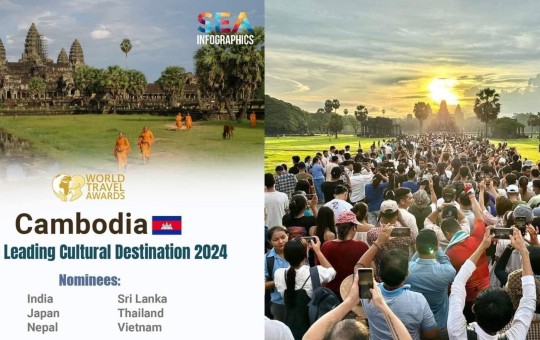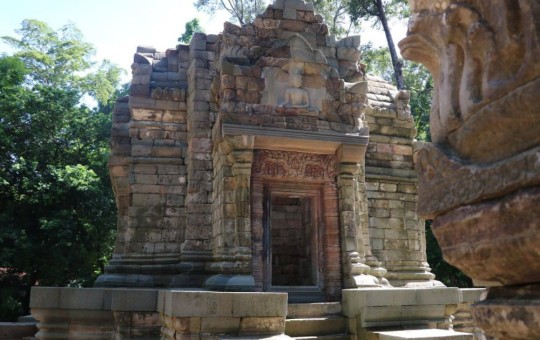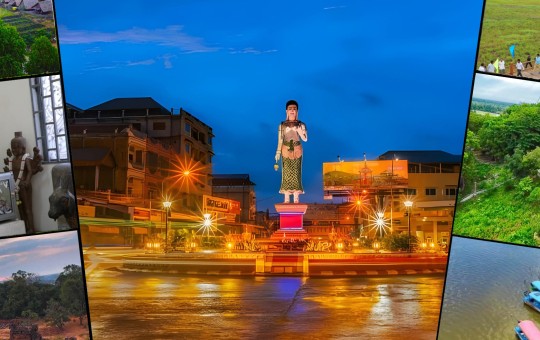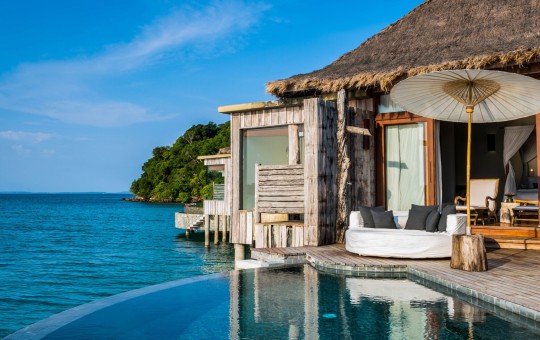
Over 1M internal trips tallied for Lunar New Year holiday
Phnom Penh and Cambodia’s 24 provinces tallied a cumulative 1,049,222 tourists – 42,056 of them foreigners – over January 21-24 for the Lunar New Year, as reported by the tourism ministry on the 25th, a figure that has been chalked up to effective Covid-19 management and infrastructure improvements.
Sourced from the tourism departments of each of the 25 first-order administrative divisions, the ministry statistics show Preah Sihanouk as the top tourist destination for the period, with 296,028, of which 7,320 were identified as foreigners, followed by Siem Riep (105,481; 15,481), Battambang (102,778; 1,083), Kampot (82,199; 847) and Pailin (81,500; 215).
Next were: Kampong Cham (67,914; 246), Kep (67,030; 836), Kandal (47,069; 751), Svay Rieng (31,228; 8), Phnom Penh (30,130; 12,746), Pursat (23,144; 41), Kampong Speu (20,133; 440), Mondulkiri (14,356; 217), Kratie (12,970; 385), Banteay Meanchey (12,225; 74), Takeo (11,140; 89), Koh Kong (10,636; 208) and Kampong Thom (5,795; 248).
Reflecting on the nationwide travel boom during the holiday, tourism minister Thong Khon on January 25 commented that many set out for their hometowns on the evening of Friday, January 20 to ready traditional offerings and make other preparations, and that hordes of day trippers descended on a whole range of tourist attractions.
Speaking in a statement, he remarked that most people travelled as a family, and that a fair share visited multiple travel spots during the four days.
“A number of travellers and residents returned to Phnom Penh on Monday [January 23] and some others came back yesterday [January 24] in the evening.
“Most vendors also closed their shops and market stalls temporarily during the New Year to reunite with their families and spend a day out, while some institutions and organisations let their employees take some time off,” he added.
According to the ministry, the district-level administrative regions with the largest proportion of foreign tourists were: Phnom Penh with 42.30 per cent, followed by Siem Reap (14.68%), Oddar Meanchey (11.28%: 88 of 780), Preah Vihear (8.94%: 472 of 5,277), Kampong Thom (4.28%), Ratanakkiri (3.06%: 130 of 4,255), Kratie (2.97%) and Preah Sihanouk (2.47%).
Next on the list were: Kampong Speu (2.19%), Kampong Chhnang (2.14%: 86 of 4,206), Koh Kong (1.96%), Kandal (1.60%), Mondulkiri (1.51%), Kep (1.25%), Battambang (1.05%), Kampot (1.03%) and Takeo (0.80%). At the very bottom were Svay Rieng (0.03%) and Tbong Khmum (0%: 0 of 2,709).
Pacific Asia Travel Association Cambodia Chapter chairman Thourn Sinan chalked up the uptick in travellers over the holiday to effective Covid management, which he hailed as a major driver of the Cambodian tourism sector’s relatively brisk post-pandemic recovery.
“This increment bodes well for a rapid tourism sector recovery, and we expect a stronger tourism comeback this year, especially of Chinese holidaymakers, as effective control of the spread of Covid-19 gives travellers the confidence to visit our country,” he told The Post on January 25.
Cambodia is among 20 countries selected by Beijing for a pilot programme allowing travel agencies to provide international group tours as well as flight and hotel packages to Chinese citizens, following a three-year ban, the state-owned China Daily reported, citing a January 20 notice from China’s tourism ministry.
The programme, which kicks off on February 6, comes amid concerns that soaring Covid cases in China could drive the emergence of new and potentially more dangerous variants of SARS-CoV-2, the coronavirus that causes the disease.
The other 19 countries chosen for the initiative were Argentina, Cuba, Fiji, Egypt, Hungary, Indonesia, Kenya, Laos, Malaysia, Maldives, New Zealand, the Philippines, Russia, Singapore, South Africa, Sri Lanka, Switzerland, Thailand and the United Arab Emirates.
State Secretariat of Civil Aviation (SSCA) spokesman Sin Chansereyvutha told The Post on January 23 that commercial flights between Cambodia and China had begun to pick up since Beijing dumped its strict “dynamic zero-Covid” regime, which imposed a limit of 15 weekly flights in either direction.
Airlines have been requesting to resume flights between the two countries, while asking to keep the same schedules and destinations as before, he confirmed.
Chansereyvutha expects even more flights to be added after the Lunar New Year holidays.
“We do not anticipate our country to be the top choice for Chinese tourists, but after embarking on trips to nearby countries … [they’ll] visit us too, and we do expect them to come in large numbers,” he said.




